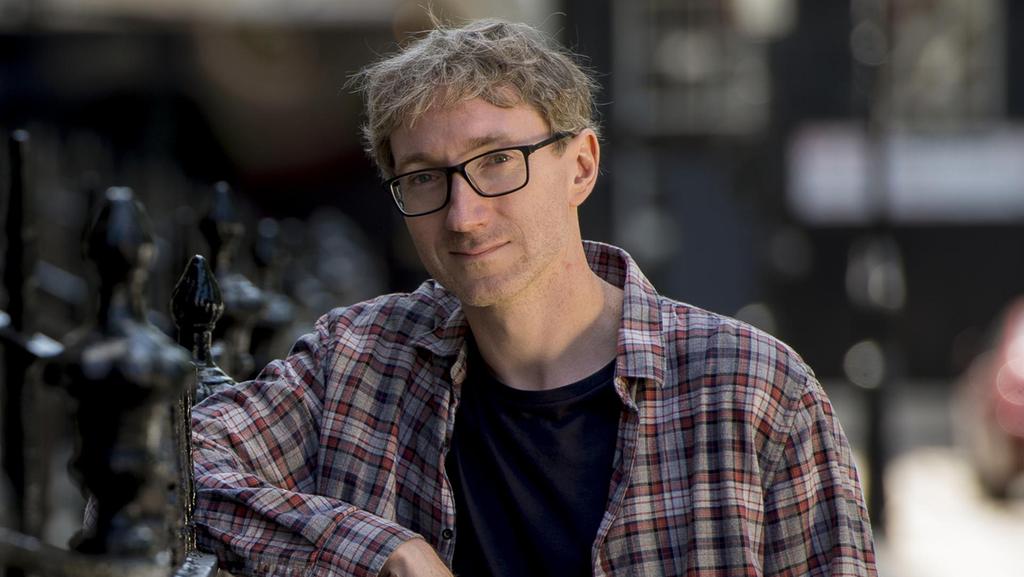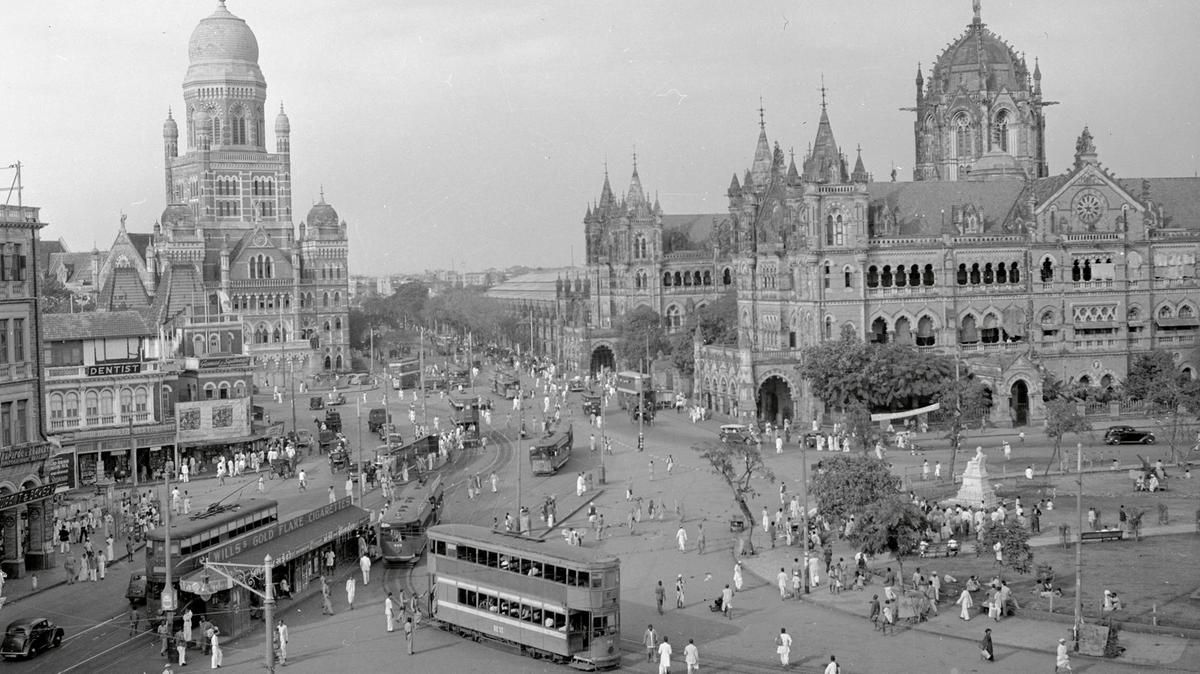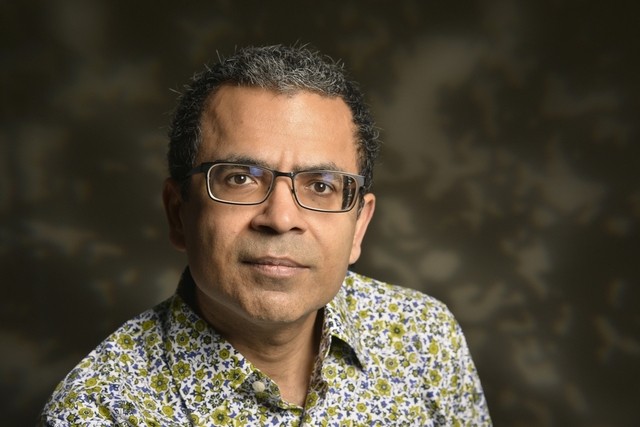“So,” explains Stuart Turton with a deep breath. “It’s an Agatha Christie-style murder mystery, but set in a Groundhog Day loop, with a bit of Quantum Leap body-swapping thrown in. Our hero Aiden wakes up every day in the body of a different house guest… but it’s the same day, so he sees the same event from very different perspectives.”
As an elevator pitch for a debut novel, it is just about perfect – not least because trying to explain his brilliantly labyrinthine new book The Seven Deaths Of Evelyn Hardcastle is difficult enough, even if you’ve just read it.
“And it’s taken me a long time to get it down to two sentences,” Turton laughs.
The widely travelled English writer has spent some of his career in the UAE. “When the book was first signed, people would ask me what it was about, and I’d finish talking to them about two hours later. You could see the light going out of their eyes. So, yeah, I’ve got a bit better at explaining it.”
A good job, too – it would be a real shame if anyone was put off by the high concept of Turton’s book, given that it is such fun to read. Aiden, we soon learn, has eight chances to identify a murderer stalking the remote Blackheath House through the eight different “hosts” he inhabits – and if he doesn’t, he will be stripped of his memories and trapped in this infernal loop forever. It makes for a really enjoyable twist on a Christie thriller, which is a genre that Turton clearly loves.
“Her mysteries were the ones I read as a kid, one after the other,” he says. “And they just stuck with me – there’s something about the form I’ve always loved. She puts all the suspects and clues in front of you, and you’re allowed to try and solve the mystery – you don’t know anything the sleuth doesn’t, most of the time. It’s almost presented as a game – and I love that about it. It feels fair – Agatha Christie saying: ‘Are you as clever as me?’ And 99 per cent of the time you’re not. Even before I knew I wanted to write a book, I wanted to write an Agatha Christie story. So I naturally gravitated towards that genre.”
But there was an obvious problem with writing that kind of murder mystery: she has already written them all, mastering every plot and twist. When The National spoke to writer Andrew Wilson last year about his own take on a Christie novel, A Talent For Murder, he said that it had to appeal to modern sensibilities to succeed. Which it did. So for Turton, figuring out a way to fashion a book that wasn’t just a pale imitation was something that has “taken me about a decade”, he admits.
During that decade, he lived for three years in Dubai. It was only towards the end of his stint working as a travel writer for Etihad’s in-flight magazine – “it was phenomenal, astonishingly fun; they were paying me to go on holiday once a month” – that he began to figure out how his novel might work.
“All these elements of being a 1980s kid, of watching Groundhog Day and Quantum Leap, congealed over the top of a murder mystery,” he remembers. “And one day it just clicked, the book was there, waiting for me, as I was on a plane. I just started writing it – it was the weirdest thing.”
Which makes the actual writing of The Seven Deaths Of Evelyn Hardcastle sound blissfully easy. Far from it. Turton jokes that he had so many Post-it notes on his walls, it would almost have been cheaper to buy stock in 3M, their manufacturer. “There were tonnes of rules I had to work out in a book like this,” he says, “otherwise the whole concept falls down. All the things you see in your favourite time-travel books or movies, where a person leaves messages for his past self, I had to lock down whether they’d be allowed in this house. Stuff like whether, in the Groundhog Day loop, if Aiden did something as one character, could that affect what would happen in the next Groundhog Day.”
For the book to have narrative momentum, Aiden does use the fact he knows he will wake up as a different character to build the picture to solve the crime. There is also a brilliantly enigmatic figure called the Plague Doctor, who arrives to explain the circumstances of Aiden’s nightmarish situation just at the point most readers will probably start to wonder whether, as Aiden does himself, they’re taking part in “a play in which everybody knows their lines except me”.
In making the rules so clear, Turton achieves something rather impressive: he encourages a real connection between author, novel and reader. The Seven Deaths Of Evelyn Hardcastle has the air of an intriguing video game in the way in which Aidan “controls” different characters and has a set amount of lives to use up in his quest. Turton is delighted by the comparison.
“I grew up playing video games and I still do, so subconsciously they became part of the process,” he agrees. “We went for a publisher meeting where someone described the hosts as avatars, which I found really interesting. Video games are great at giving you a direct experience and putting you under pressure every moment, so it would be great if a book could do that too. ”
All of which does feed into the idea that The Seven Deaths Of Evelyn Hardcastle is a much brisker and more modern book than its art deco cover and talk of early motor cars might suggest. Even the country house setting, with its lords, ladies and household staff, is written from a decidedly 21st-century outlook.
“You know, it winds me up every time people decide this era – where people were doomed to be poor and the rich got to be better than everyone else – was somehow the greatest period in British history. It’s been fetishised as this brilliant time that we’ve lost, but I’m proud we got beyond that and we have social mobility.
“So pretty much all the upper-class people in the book are vile, old, grasping. I didn’t want it to overshadow the story at all, but the subtext is definitely that this was a decaying, crumbling period of history that we should be locking away, not aspiring to.”
So in the wake of Downton Abbey’s success, it will be fascinating to see how the producers of a forthcoming television adaptation of The Seven Deaths Of Evelyn Hardcastle approach the book’s quiet politics. In the meantime, Turton is busy putting up Post-It notes again, for a follow-up set in the 15th century, and hopes to make a return visit to Dubai – “I met my wife there, so Dubai for me is bound up with getting to know her. I really adore the place for that.” More immediately, he is looking forward to the reaction to his novel.
“Publishing your debut is weird – nothing happens for a long time and then you’re shot out of a cannon,” he laughs. “But it’s really exciting: I’m being greedy, but I’d genuinely like people to want to read it more than once because it has been written in layers – there’s loads of clues and foreshadowing.
“It’s like a tapestry, the more you look into it, the more details you see.”
[amazon asin=1408889560&template=add to cart]

